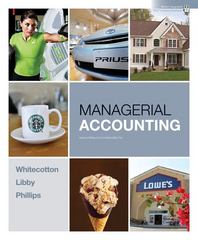Question
1.You have been hired by ScotiaBank (BNS) to compare the risks faced by your bank to the risks of one of your competitors, Royal Bank
1.You have been hired by ScotiaBank (BNS) to compare the risks faced by your bank to the risks of one of your competitors, Royal Bank (RBC) and to identify and understand the risk management strategy adopted by each bank. You begin your analysis by collecting the information from the respective sections of the 2018 annual reports of the two banks available on their websites. To prepare presentation for the bank officers, you anticipate and answer the following questions:
a)Based on your reading of the Annual Report, briefly summarize the Assets, Liabilities, and Shareholders' Equity of each bank and compare the two balance sheets. Also, look at the off-balance sheet items reported and compare the size and type of the off-balance sheet exposure of the two FIs.
b)Based on your reading of the Annual Reports, list and briefly describe the main risks faced by each FI (provide numbers if available).
Management is concerned that interest rates will decrease by the end of the year (Oct. 2019) and wants to know what would happen to the relative profitability of the bank if the decrease actually occurs.
c)What is the total for interest-rate-sensitive assets and liabilities for the two banks using a repricing period of one year?
d)What is the size and direction of the banks' interest rate risk exposures as of October 2018 arising from on-balance sheet cash flow mismatches? Use both the dollar amounts of the one-year cumulative GAP and the percentages it represents of the total assets. Discuss the exposure. What can you say with regard to bank managers' anticipation about future interest rates?
e)Based on the gap analysis, which bank is more exposed to interest rate risk?
f)What is the total (on and off-balance sheet) one-year cumulative GAP of each bank, both in dollar terms and in percentage of the total assets?What can you say about the use of off-balance sheet items in hedging interest rate risks?
g)What are the changes in each bank's interest rate risk exposure from 2017 to 2018?
Step by Step Solution
There are 3 Steps involved in it
Step: 1

Get Instant Access to Expert-Tailored Solutions
See step-by-step solutions with expert insights and AI powered tools for academic success
Step: 2

Step: 3

Ace Your Homework with AI
Get the answers you need in no time with our AI-driven, step-by-step assistance
Get Started


